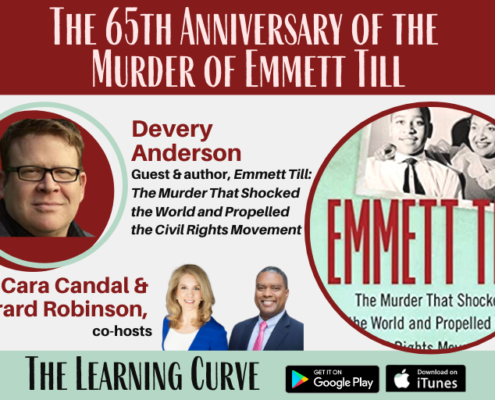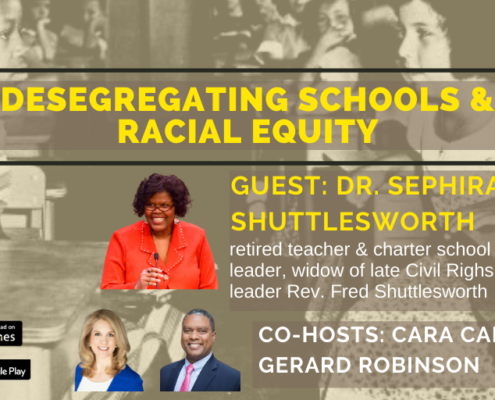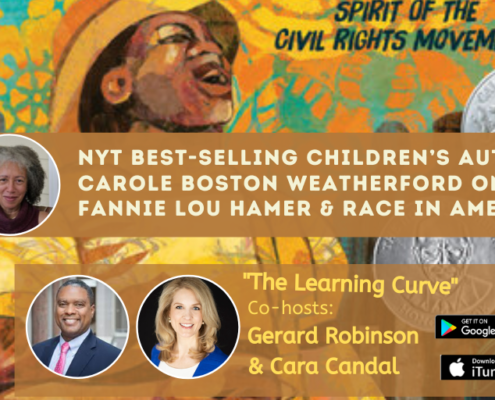Ignat Solzhenitsyn on His Father’s Nobel Prize-Winning Fight with Communism
This week on “The Learning Curve,” Cara and Gerard talk with Ignat Solzhenitsyn, a pianist, conductor laureate of the Chamber Orchestra of Philadelphia, principal guest conductor of the Moscow Symphony Orchestra, and son of the Nobel Prize-winning Russian writer Aleksandr Solzhenitsyn. They discuss his father’s legacy, his courageous work to debunk the Soviet Union’s utopian myths, and key lessons American educators and students should draw from his life, writings, and battle with Soviet communism. They also explore his warning to Western democracies in his historic “A World Split Apart” Harvard Commencement speech, about their own crippling “short-sightedness,” “loss of will,” and crisis of spirit. Ignat describes his family’s 20-year exile in rural Vermont, recounted in his father’s newly released memoir, Between Two Millstones, Book 2, in which Solzhenitsyn expounds on the vital importance of local self-government, the rule of law, liberty, and what he called “self-limitation.” Ignat describes the education he and his brothers received at home, his own impression of the strengths and weaknesses of American education, and what inspired him to become a classical musician and conductor. He concludes with a reading from one of his father’s works.
Related: 2018 op-ed by Jamie Gass: “As we mark 100th anniversary of Solzhenitsyn’s birth, we appreciate importance of historical literacy”
Guest:

Ignat Solzhenitsyn is president of the Aleksandr Solzhenitsyn Center, and an active conductor and pianist. Mr. Solzhenitsyn has appeared with numerous major orchestras, including those of Boston, Chicago, Philadelphia, St. Louis, Los Angeles, Montreal, Toronto, London, Paris, St. Petersburg, Israel, and Sydney, and collaborated with many distinguished conductors and soloists. A winner of the Avery Fisher Career Grant, Solzhenitsyn is Conductor Laureate of the Chamber Orchestra of Philadelphia and serves on the faculty of the Curtis Institute of Music.
Stories of the Week: As Congress takes up the question of a second impeachment of the President after last week’s riot, Cara and Gerard discuss the state of civics education in America. Are we doing all we can to ensure that future generations understand the basics of our Founding Documents, Constitution, Bill of Rights, & complex national history? Also, how long will COVID-induced remote learning continue? Analysis from EducationWeek suggests that, despite the many growing pains associated with them, hybrid learning models are likely here to stay. In Virginia, a new poll of 625 registered voters shows increasing support for allowing parents to use some per-pupil funds toward home, virtual, or private education if public schools do not reopen for in-person learning.
The next episode will air on Wednesday, January 20th, 2020 at 12 pm ET with guest, Taylor Branch, a Pulitzer Prize-winning author best known for his landmark trilogy on the civil rights era, America in the King Years.
Tweet of the Week:
Congrats to @CollegeFix alumnus @katejhardiman on her new book offering solutions to the K-12 monolith. For parents and anyone else who cares about public education reform, "Unshackled: Freeing America’s K–12 Education System" is a must read! https://t.co/dh68EcGAW9
— The College Fix (@CollegeFix) January 11, 2021
News Links:
Poll: Virginians Support Funding Students, Not Systems
https://www.federationforchildren.org/virginians-support-funding-students-not-systems/
‘No Going Back’ From Remote and Hybrid Learning, Districts Say
Get Updates on Our Education Research




















